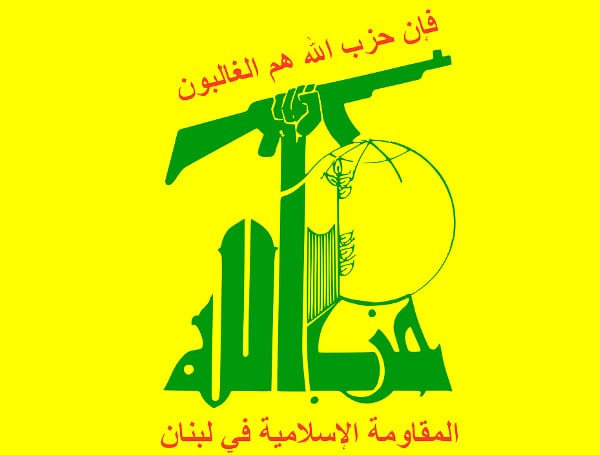In recent days, Lebanon’s Hezbollah movement has engaged in intense fighting with Israeli soldiers on the border, raising concerns of a potential full-scale war.
As tensions escalate, experts fear that Hezbollah, backed by Iran, may open a new front against Israel, which could have devastating consequences for both Lebanon and Israel.
We take a look at Hezbollah’s military capabilities, shedding light on its past conflicts with Israel, its current strength, and the likelihood of a future war.
In the news: Israel To Evacuate Residents Living Near Lebanon Amid Ongoing Threats
Hezbollah’s Past Conflicts with Israel
Hezbollah has a history of engaging in conflicts with Israel. In July 2006, the group captured two Israeli fighters on its border, triggering a massive military response from Israel.
The war lasted 34 days and resulted in the deaths of more than 1,100 Lebanese nationals and 165 Israelis. While the war ended without a conclusive victory for either party,
Lebanese civilians bore the brunt of the destruction. Israel’s military campaign resulted in the destruction or damage of thousands of homes, bridges, and medical facilities.
Hezbollah’s Evolving Military Capabilities
Over the last 17 years, Hezbollah has significantly enhanced its military capabilities. According to Nicholas Blanford, an expert on Hezbollah, the group’s fighters have increased from 3,000 to 5,000 since the 2006 war.
Moreover, Hezbollah has augmented its missile stockpile from 14,000 to approximately 150,000.
While most of these missiles are short-range, the group also possesses Iranian precision-guided missiles with a range of 300km (186 miles). Additionally, Hezbollah’s “special forces” unit is trained for infiltration into Israel in the event of a war.
Hezbollah’s Current Strength
Today, Hezbollah is estimated to have at least 60,000 fighters, including full-time and reservists.
This sizable force, combined with its substantial missile arsenal, poses a significant threat to Israel. Randa Slim, the director of the Conflict and Resolutions Program at the Middle East Institute, highlights that Hezbollah’s combat capabilities were further honed during its intervention in the Syrian war.
The prolonged conflict provided Hezbollah with valuable experience in urban warfare and intelligence gathering, bolstering its military prowess.
In the news: German Festival-Goer, Shani Louk, Identified As Young Woman Paraded Around In Truck By Hamas Terrorists
Likelihood of a Hezbollah-Israel War
While border skirmishes between Israel and Hezbollah are not uncommon, experts believe that the risk of a major escalation is higher now.
According to Slim, Hezbollah and Iran may decide to open a second front against Israel, depending on the severity of atrocities committed in Gaza.
If Hamas is on the verge of defeat, Hezbollah could intervene. Slim also notes that Iran has formed a cohesive “resistance axis” with Hezbollah as a key player, indicating a higher likelihood of coordinated action in the future.
Factors Influencing a Potential War
Several factors may influence the outbreak of a Hezbollah-Israel war. On one hand, Blanford argues that Iran and Hezbollah are likely to exercise restraint, as Hezbollah serves as a crucial deterrent against potential Israeli and US plans to attack Iran.
A war in Lebanon would severely weaken Hezbollah, compromising Iran’s deterrence capabilities.
On the other hand, Blanford acknowledges that Iran could still activate its proxies against Israel if it deems it the opportune time to strike. The presence of two US aircraft carriers in the eastern Mediterranean serves as a deterrent to Iranian-backed groups targeting Israel.
Hezbollah’s Strengths and Limitations
While Hezbollah has the capacity to inflict significant damage on Israel, it remains outmatched by the Israeli military.
Slim suggests that Hezbollah could sustain an assault on Israel, targeting critical infrastructure such as airports and electricity grids.
However, Israel’s military superiority would likely result in the devastation of most of Lebanon. In a wider conflict, Israel may employ the “Dahiya Doctrine,” which advocates for the use of disproportionate force targeting both civilian and military infrastructure.
In the news: Here’s How China Is Helping Iran Bankroll Hamas, Other Terror Orgs
Potential Consequences of a Hezbollah-Israel War
A war between Hezbollah and Israel would have severe consequences for Lebanon. Imad Salamey, an associate professor of political science and international affairs, warns that such a conflict could lead to civil strife within Lebanon, exacerbating the country’s existing economic and political crises.
The migration of Shia Lebanese citizens to majority Christian and Sunni areas could trigger sectarian tensions. Critics and opponents of Hezbollah may explicitly blame the group for dragging the country into war, further dividing communities domestically.
Hezbollah’s military capabilities have significantly evolved since its last war with Israel in 2006. With an increased number of fighters and a substantial missile arsenal, Hezbollah poses a significant threat.
While the likelihood of a full-scale Hezbollah-Israel war remains uncertain, the potential consequences, both for Lebanon and Israel, are dire.
Android Users, Click To Download The Free Press App And Never Miss A Story. Follow Us On Facebook and Twitter. Signup for our free newsletter.
We can’t do this without your help; visit our GiveSendGo page and donate any dollar amount; every penny helps

